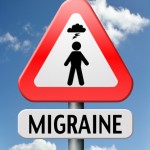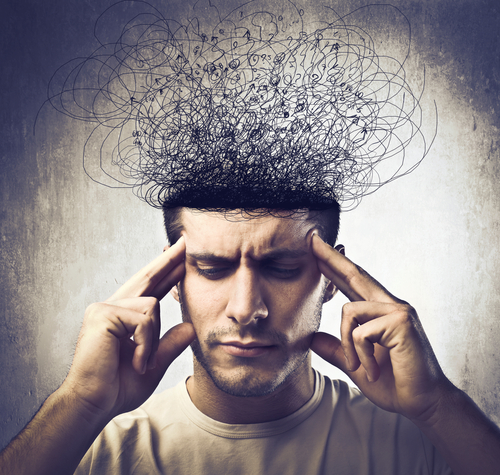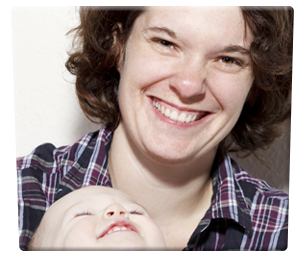Migraine headaches? Learn how Neurofeedback could help you
Can Neurofeedback help with Migraine Symptoms?
In this 2010 study, 37 migraine patients were treated with Neurofeedback, and 70% experienced at least a 50% reduction in the frequency of their headaches which was sustained on average 14.5 months after treatment : Stokes, Deborah A., and Martha S. Lappin. “Neurofeedback and biofeedback with 37 migraineurs: a clinical outcome study.” Behav Brain Funct 2 (2010): 6-9. 
In this 2011 study, more that 50% of those trained with Neurofeedback experienced complete cessation of their migraines. The researchers concluded “Neurofeedback appears to be dramatically effective in abolishing or significantly reducing headache frequency in patients with recurrent migraine”. Walker, Jonathan E. “QEEG-guided neurofeedback for recurrent migraine headaches.” Clinical EEG and Neuroscience 42.1 (2011): 59-61.
BrainTrainUT client Sue Lane suffered migraines for 28 years until 2015 until she came to see us – read Sue’s story here.
Call us now at (801) 686-9334 to discuss how Neurofeedback could help your migraines.What is Migraine ?
Migraine is best described as a neurological disturbance, manifesting in a severe headache and additional symptoms. The headache is often experienced at the front or one side of the head and can last from hours to a few days. Migraine attacks occur at difference frequencies for different people – from every now and again to regularly several times a week. Despite intensive research and the fact that 15% of the population is affected by Migraine, the exact cause of Migraine hasn’t been discovered yet. Researchers believe it has to do with changes in chemicals of the brain or increased excitability of the cerebral cortex. Also, genetic factors have shown to play an important role in the occurrence of Migraine, as well as emotional, physical, dietary, environmental and medicinal ‘triggers’. Additionally, there seems to be a connection between Migraine and hormonal influences (e.g. menstruation, pregnancy, and menopause).
Symptoms of Migraine
 The main symptom of Migraine is headache. How severe, frequent and long a headache occurs differs per person and situation. Another striking symptom is an aura, which is also known as a ‘warning signal’ before Migraine occurs. This signal can manifest in visual problems (flashing lights, zigzag patterns or blind spots), stiffness or a tingling sensation, problems with coordination, difficulty speaking and loss of consciousness. Besides a headache and an aura, several additional symptoms exist, varying in occurrence and degree from person to person:
The main symptom of Migraine is headache. How severe, frequent and long a headache occurs differs per person and situation. Another striking symptom is an aura, which is also known as a ‘warning signal’ before Migraine occurs. This signal can manifest in visual problems (flashing lights, zigzag patterns or blind spots), stiffness or a tingling sensation, problems with coordination, difficulty speaking and loss of consciousness. Besides a headache and an aura, several additional symptoms exist, varying in occurrence and degree from person to person:
| Symptoms associated with Migraine |
|---|
| Nausea |
| Vomiting |
| Perceiving an aura |
| Photophobia (sensitivity to light) |
| Phonophobia (sensitivity to sound) |
| Osmophobia (sensitivity to smells) |
| Poor concentration |
| Sweating |
| Feeling very hot or very cold |
| Abdominal pain (which can sometimes cause diarrhea) |
| A frequent need to urinate |
Treatment for Migraine
There is no cure and often Migraine is primarily treated with anti-inflammatory medicines (e.g. ibuprofen) and painkillers (e.g. aspirin, acetaminophen) for the headache and anti-emetic for the nausea. Other medications (triptans or ergotamines) are prescribed when these ‘simple’ medications aren’t effective. However, there is a risk that frequently taking medications results in ‘medication overuse headache’; headaches become more severe and more frequent. Nutritional supplements, lifestyle adjustments and surgery are other treatment recommendations, mostly when headaches occur more than twice a week, medication isn’t tolerated, or when severe attacks are (too) difficult to control.
Neurofeedback and Migraine
 Neurofeedback training can help with dysfunctions in the central nervous system, such as the increased excitability of the cerebral cortex in the case of Migraine. Because of working directly with the central nervous system, Neurofeedback training can be very effective in stabilizing the excitability of the cerebral cortex resulting in reduced headaches, less sensitivity and improvements in other symptoms associated with Migraine.
Neurofeedback training can help with dysfunctions in the central nervous system, such as the increased excitability of the cerebral cortex in the case of Migraine. Because of working directly with the central nervous system, Neurofeedback training can be very effective in stabilizing the excitability of the cerebral cortex resulting in reduced headaches, less sensitivity and improvements in other symptoms associated with Migraine.



